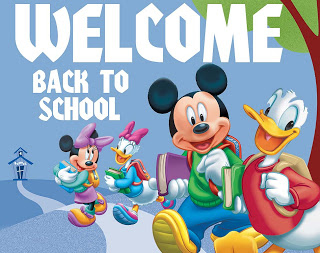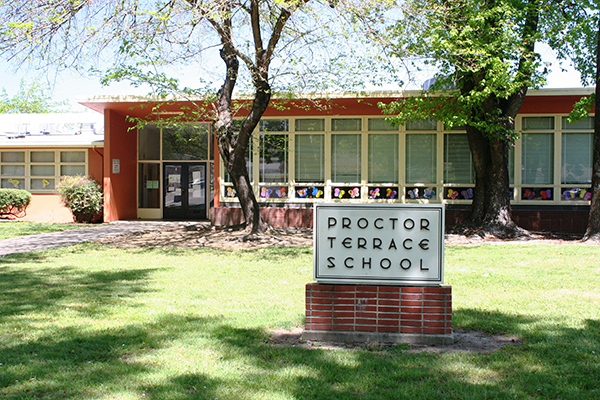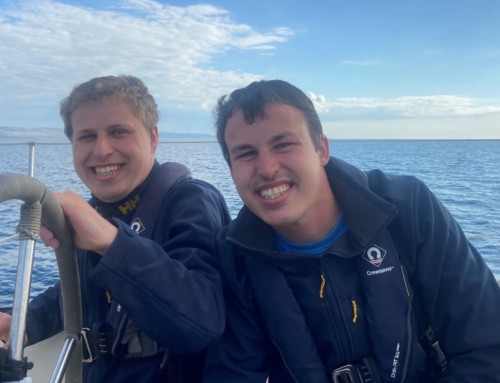School and the Autistic child.
 A lot of families in our group connected with me over the summer about choosing a school for their special needs child. So I thought this would be a good topic for my next post. One of the most important decisions any parent of a special needs child will make is what school your child will attend. Or as it is often described, ‘the school placement’. In this discussion I’m only going to touch on the systemic aspects of schooling or things like IEP’s (individual educational plans), specialized teaching methods and the like. Today I want to look behind the law and the theory to speak about the fabric of schools, their missions, ethics and what we as parents need. This post will discuss one set of experiences we have had with our boys. More stories will follow!
A lot of families in our group connected with me over the summer about choosing a school for their special needs child. So I thought this would be a good topic for my next post. One of the most important decisions any parent of a special needs child will make is what school your child will attend. Or as it is often described, ‘the school placement’. In this discussion I’m only going to touch on the systemic aspects of schooling or things like IEP’s (individual educational plans), specialized teaching methods and the like. Today I want to look behind the law and the theory to speak about the fabric of schools, their missions, ethics and what we as parents need. This post will discuss one set of experiences we have had with our boys. More stories will follow!
When I think of our school experiences with Conor and Eoin, we have run the full gambit of what I would call wonderful learning environments and yes, ones that were downright hostile to children with special needs. Given the laws associated with education, schools on both ends of the spectrum frequently present as equally authentic in their interest in growing your child, but the reality can be far from what first appearances suggest.
A Wonderful setting
One of our most positive experiences in terms of the boys was the Proctor Terrace school in down town Santa Rosa. Here was a long established school nestling in a mature neighborhood. It had a multi-generational feel about it, with its staff experienced and comfortable in their day to day activities.
The school had the typical layout of any school in the region, individual classrooms dotted around a school campus with a small central administration with the principal, support staff and wings feeding outwards to the various classes. Among these was the special day class that Eoin was to be placed, taught by an experienced and long standing teacher Ms Ginger Matich.
What struck Val and I from our first meeting was how integrated Ginger was to other staff members and how this flowed to the integration of her class into the rest of the school. From academic activities, to music, to school plays and beyond, Ginger integrated her class and Eoin enjoyed a holistic school experience which brought tears to our eyes on many occasions.
Children are the best teachers
 In the classroom Ginger clearly knew what she was doing and used all the resources available to her to holistically grow her students. As one would expect these included an instructional aid, visual aids everywhere and a whole lot of energy. The classroom was very traditional in layout but was frequently turned into themed environments like an amazon rain forest or deepest Africa. But the resources that were most prominent in the class were the children themselves. Ginger encouraged them to collaborate together, learn from each other and support one another. At the same time she also made each child responsible for their own performance, their books, their learning, their sports achievements.
In the classroom Ginger clearly knew what she was doing and used all the resources available to her to holistically grow her students. As one would expect these included an instructional aid, visual aids everywhere and a whole lot of energy. The classroom was very traditional in layout but was frequently turned into themed environments like an amazon rain forest or deepest Africa. But the resources that were most prominent in the class were the children themselves. Ginger encouraged them to collaborate together, learn from each other and support one another. At the same time she also made each child responsible for their own performance, their books, their learning, their sports achievements.
The learning experience also extended beyond the school to field trips with other classes. The children got to see what they were learning at the San Francisco Zoo, the Redwood trees at national parks, fish hatcheries and the Charles Schultz’s snoopy center around the corner from the school. Again the integration of the children cross classes was wonderful to see with class projects being read out by well prepared children along the trail. And what of a physically disabled child who got tired and couldn’t walk any further? Ginger carried her.
An authentic school
So, from the individual child, to the class, the teacher, the classroom, the teacher and student body, the school layout and the Principal, here was an integrated school that worked to weave diversity into the fabric of their daily routine. Without doubt Ginger was a major engine driving this, but the broader school environment was willing to be led by her. This was a school that was born of and lived in the real world with all its vagaries and prejudices that parents of special needs children know so well. And built out of this were teachers and a school that was authentic in what it said and did to educate our children.
A world apart
On the other hand Conor, who was nonverbal needed a different setting, or so the ‘experts’ insisted. Eoin was becoming verbal through the language work we had been doing with him at home through the ALL program and an incredibly dedicated educational and clinical team. Conor’s language was just coming into being again through ALL, albeit literacy only given his severe hearing impairment. Conor also had severe sensory integration issues and performance anxiety which left him very reticent to interact with anyone other than Val and I.
Distinguished school?
So given all this, a “hand picked” school was suggested to us outside of the city. The setting was a “Distinguished School” (still don’t know what this means), relatively new in a recently established and growing neighborhood. The special day class was completely separate from the main school being placed on the far side of the school open area. When we visited the school, we were walked through the school yard to the classroom. There was no contact with the main school or its staff.
Looking at the setting
 The class tour was conducted by a staff principal from the local school management. She was clearly administrative and had little contact with the daily routine of the classroom. When we arrived into the classroom it was like a railway station. Some of the children were seated around a U shaped table engaged in some sort of learning activity with the class teacher. Some more were in the wet area with an instructional aid painting. A small group of typical children from the ‘host’ school were standing around. They were near the door of the classroom, ostensibly to help out with socialization activities. This classroom was otherwise incredibly tidy with little on the walls and less on the desks. No matter what our requests were for Conor, we were told they were either doing it or planned to do it. And most promising was the principal who said she would be very responsive to requests to improve the program. We barely got to speak with the teacher save a warm handshake as we were leaving.
The class tour was conducted by a staff principal from the local school management. She was clearly administrative and had little contact with the daily routine of the classroom. When we arrived into the classroom it was like a railway station. Some of the children were seated around a U shaped table engaged in some sort of learning activity with the class teacher. Some more were in the wet area with an instructional aid painting. A small group of typical children from the ‘host’ school were standing around. They were near the door of the classroom, ostensibly to help out with socialization activities. This classroom was otherwise incredibly tidy with little on the walls and less on the desks. No matter what our requests were for Conor, we were told they were either doing it or planned to do it. And most promising was the principal who said she would be very responsive to requests to improve the program. We barely got to speak with the teacher save a warm handshake as we were leaving.
Disaster waiting to happen
We took the placement despite misgivings and in the hope it could be improved. And you guessed it: it was a disaster. In effect, the classroom had been parachuted into a field that was close to a school. The teacher, for whom I have the greatest respect, was totally alone in a school campus of several hundred children and associated teaching staff. In fact many of the teaching staff were unaware of the special day class and the onsite principal had no input into its operation. The special day children played in a small grassy area behind the room and the social peers never appeared again.
When I started to raise issues about the placement with the administrative principal, she simply dismissed me and said the placement was ‘appropriate’. She wrapped up our meeting by saying they were ‘the only game in town’. After three months in the setting, I pulled Conor out and called in the attorneys. As time would prove, there are always options and well argued cases can succeed. Which is what happened for us. More about this in a future post.
What did we learn?
The maxim ‘it takes a village to raise a child’ comes to mind. Both special day classes in each school had dedicated, hardworking teachers. But the broader fabric of diversity and integration was profoundly missing in Conor’s broader setting. The school was going out of its way to distance itself from an appendage it clearly did not want. While we came to blows with the special day class centralized administration, the true issues lay elsewhere. As I mentioned earlier, schools are a representation of the community from which they are drawn, their values, beliefs and aspirations. And by taking the actions we took helped to shine a light on a broader perspective where real change needs to happen: in society at large.
Expectations matter
High expectations are vital to the growth of every child and these expectations cascade into the creation of learning environments that deliver results. Eoin was fortunate to have attended a school that reflected this in spades. The reverse was equally true for Conor, and if left unchecked would have had disastrous outcomes in both the short and long term. Low expectations become self fulfilling prophecies which are very hard to reverse. When I look at our Animated Language Learning activities around the world; the research we do into Disney animation and socio-emotional language; the academic and clinical environments we work within; The cutting edge technologies we are surrounded by; In the midst of all of this I keep the basics front and center, because without the basics we have nothing. Language is simply the labeling and expression of our experiences. If our children’s experiences are debased, so too will be their language and behaviors.
Picking a school that works
 As for picking the right setting for your child? Let me put it this way: treat it like a marriage, fundamental problems don’t improve after the event. And divorce is a painful process. Know what you want and need and make sure you can see and experience it before you commit. Talk to other parents and get a feel for what the school culture really ‘feels’ like. Look at the community from which the school is drawn. Are the parents focused on providing an holistic education for all or getting their child uniquely into the Oval office. Remember no school is perfect and many school settings are constructs demanding give and take on both sides. Look carefully at the fundamentals and trust your own judgement. You know your child better than anyone, and while professionals come and go over time, your child’s welfare will always center on your decisions. And as with all parents we inherit the results of our decisions for better or for worse.
As for picking the right setting for your child? Let me put it this way: treat it like a marriage, fundamental problems don’t improve after the event. And divorce is a painful process. Know what you want and need and make sure you can see and experience it before you commit. Talk to other parents and get a feel for what the school culture really ‘feels’ like. Look at the community from which the school is drawn. Are the parents focused on providing an holistic education for all or getting their child uniquely into the Oval office. Remember no school is perfect and many school settings are constructs demanding give and take on both sides. Look carefully at the fundamentals and trust your own judgement. You know your child better than anyone, and while professionals come and go over time, your child’s welfare will always center on your decisions. And as with all parents we inherit the results of our decisions for better or for worse.








Leave A Comment